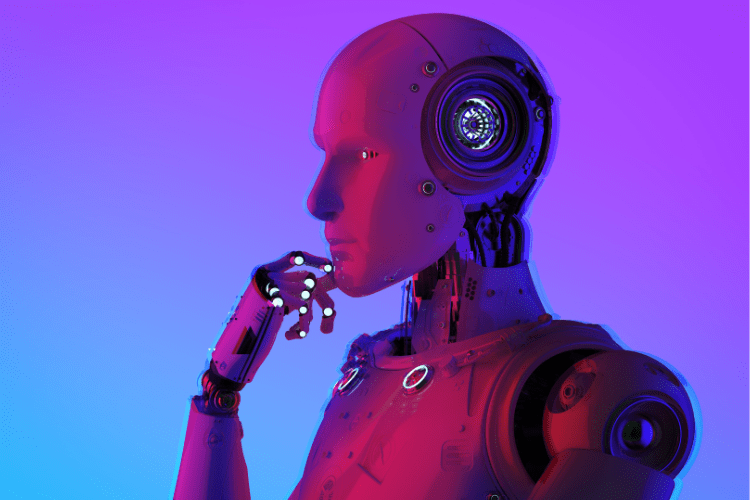Stay Ahead of Automation: 5 High-Paying Careers Unaffected by AI

Artificial intelligence (AI) is creating another tech revolution that will completely reshape the job market.
While seeing these changes is fantastic, it’s natural for some people to fear the future.
Will AI take over everyone’s job and leave masses of unemployed workers? Or will its rise become a regular part of our lives?
Luckily, replacing us entirely in the workforce will take a long time.
In our post, we’ll discuss the potential impact of AI on our jobs in the future and introduce you to a few careers that won’t be affected by automation any time soon.
Let’s dive in!
How Many Jobs Will AI Replace?
AI has been helping people optimize their workflow by doing mundane tasks that used to take us hours.
However, this tech is still in its infancy. Once it becomes more commonplace, AI could replace up to 4.8 million jobs in the US alone. And seeing how fast it evolved in the last couple of years, expect that number to tilt higher as it becomes more advanced.
So, should you be worried? It depends.
Some jobs may become completely obsolete in a few years. On the other hand, AI will create new jobs we’ve never even heard of before.
Opening up to learning new skills or finding an AI-proof career path is one of the best ways to secure your future in an increasingly automated work environment.
If you’re worried your job might be at risk for automation, check out Will Robots Take My Job? This nifty site takes the latest data to calculate which jobs are most at risk!
5 Top AI-Proof Jobs To Secure Your Future
There are many rewarding careers where automation won’t happen any time soon. Here are a few you should consider:
1. Clinical Psychologists
Average Salary: $82,510
Chance Of Automation: 7%
Have you always wanted to help people improve their mental and emotional well-being? Clinical psychologists use empathy and their deep understanding of human behaviors, emotions, and thinking patterns to diagnose and give people with mental disorders the needed treatment. Given the human-centric and complex nature of the job, it’s unlikely to be replaced by AI just yet.
2. Postsecondary Teachers
Average Salary: $78,300
Chance Of Automation: 13%
AI can now help with your research papers and tutor you on specific subjects. However, it will never replace your favorite college professor’s encouragement and extensive knowledge. Aside from creating lesson plans and evaluating students, professors can serve as mentors and teach valuable lessons to students as they prepare for the workforce.
3. Nurse Practitioners
Average Salary: $120,680
Chance Of Automation: 0%
Nurse practitioners have the skills and knowledge to treat patients, prescribe medication, and order diagnostic tests. They can also serve as primary care providers and work alongside physicians and other medical providers. Since any nursing position requires so much human interaction, complex decision-making skills, and versatility, AI’s unlikely to replace them entirely.
4. Occupational Therapists
Average Salary: $85,570
Chance Of Automation: 0%
An occupational therapist (OT) gives people with disabilities the strength and skills they need to live fulfilling lives. They can create customized treatment plans, set realistic goals, and monitor their patients’ progress. Like the other medical professions on this list, occupational therapy is a highly complex career path that involves direct human contact. The nature of the job makes it hard for AI to make OTs obsolete at any point.
5. Marketing Managers
Average Salary: $135,030
Chance Of Automation: 18%
Marketing managers create effective strategies to help a business stand out from its competitors. They analyze market trends, discover target audiences, and develop campaigns to increase brand awareness. While AI can analyze data, a marketing manager still needs emotional intelligence to understand and connect with customers on a deeper level, making it unlikely they’ll be out of a job just yet.
The Bottom Line
No one can predict how AI will transform our lives, but some careers fare better than others.
If you’re trying to stay safe in the changing job landscape, focus on a career path that emphasizes human skills like empathy, creativity, and adaptability.
On another note, don’t let the rise of AI scare you! Instead, use it to level up your skills or research new career paths. By doing so, you can make the most of any opportunities that come up in the future.
Read More:










